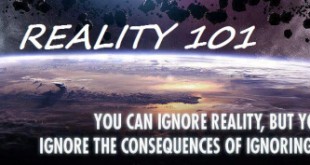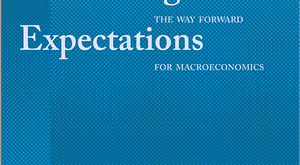Why non-existence of uncertainty is such a monstrously absurd assumption All these pretty, polite techniques, made for a well-panelled Board Room and a nicely regulated market, are liable to collapse. At all times the vague panic fears and equally vague and unreasoned hopes are not really lulled, and lie but a little way below the surface. Perhaps the reader feels that this general, philosophical disquisition on the behavior of mankind is somewhat remote from the economic theory under...
Read More »Question the monetary system and you’re academically dead!
Question the monetary system and you’re academically dead! [embedded content]Bernard Lietaer is a former professor of international finance and president at the Central Bank of Belgium.
Read More »Did Keynes ‘accept’ the IS-LM model?
Did Keynes ‘accept’ the IS-LM model? Lord Keynes has some interesting references and links for those wanting to dwell upon the question if Keynes really “accepted” Hicks’s IS-LM model. My own view is that IS-LM doesn’t adequately reflect the width and depth of Keynes’s insights on the workings of modern market economies: 1 Almost nothing in the post-General Theory writings of Keynes suggests him considering Hicks’s IS-LM anywhere near a faithful rendering of his thought. In Keynes’s...
Read More »Econometric delusions
Because I was there when the economics department of my university got an IBM 360, I was very much caught up in the excitement of combining powerful computers with economic research. Unfortunately, I lost interest in econometrics almost as soon as I understood how it was done. My thinking went through four stages: 1.Holy shit! Do you see what you can do with a computer’s help. 2.Learning computer modeling puts you in a small class where only other members of the caste can truly...
Read More »Robert Lucas — an economist pretending to know
Robert Lucas — an economist pretending to know We are storytellers, operating much of the time in worlds of make believe. We do not find that the realm of imagination and ideas is an alternative to, or retreat from, practical reality. On the contrary, it is the only way we have found to think seriously about reality. In a way, there is nothing more to this method than maintaining the conviction … that imagination and ideas matter … there is no practical alternative” Robert Lucas...
Read More »Phelps’ smackdown on Lucas’ rational expectations
Phelps’ smackdown on Lucas’ rational expectations The tiny little problem that there is no hard empirical evidence that verifies rational expectations models doesn’t usually bother its protagonists too much. Rational expectations überpriest Thomas Sargent has defended the epistemological status of the rational expectations hypothesis arguing that since it “focuses on outcomes and does not pretend to have behavioral content,” it has proved to be “a powerful tool for making precise...
Read More »Go Canada Go!
[embedded content]
Read More »Bayesian rationality — a version of probabilistic irrationalism (wonkish)
Bayesian rationality — a version of probabilistic irrationalism (wonkish) The initial choice of a prior probability distribution is not regulated in any way. The probabilities, called subjective or personal probabilities, reflect personal degrees of belief. From a Bayesian philosopher’s point of view, any prior distribution is as good as any other. Of course, from a Bayesian decision maker’s point of view, his own beliefs, as expressed in his prior distribution, may be better than any...
Read More »Neoclassical economics — purchasing validity at the cost of empirical content
Neoclassical economics — purchasing validity at the cost of empirical content The fact that the economics profession was caught unawares in the long build- up to the 2007 worldwide financial crisis and substantially underestimated its dimensions once it started to unfold can be attributed to two factors … first, the lack of an empirical motivation in the essential modelling assumptions, combined with questionable ceteris paribus assumptions; and second, a blatant disregard for the complete...
Read More »Denmark’s euro problem
Denmark’s euro problem Denmark has combined high taxes and strong social benefits (free college, heavily subsidized child care, and more) with strong employment and high productivity. It shows that strong welfare states can work. But it is worth noting that Denmark has had a fairly bad run since the global financial crisis, with a severe slump and a very weak recovery. In fact, real GDP per capita is about as far below pre-crisis levels as that of Portugal or Spain, although with much less...
Read More » Heterodox
Heterodox








